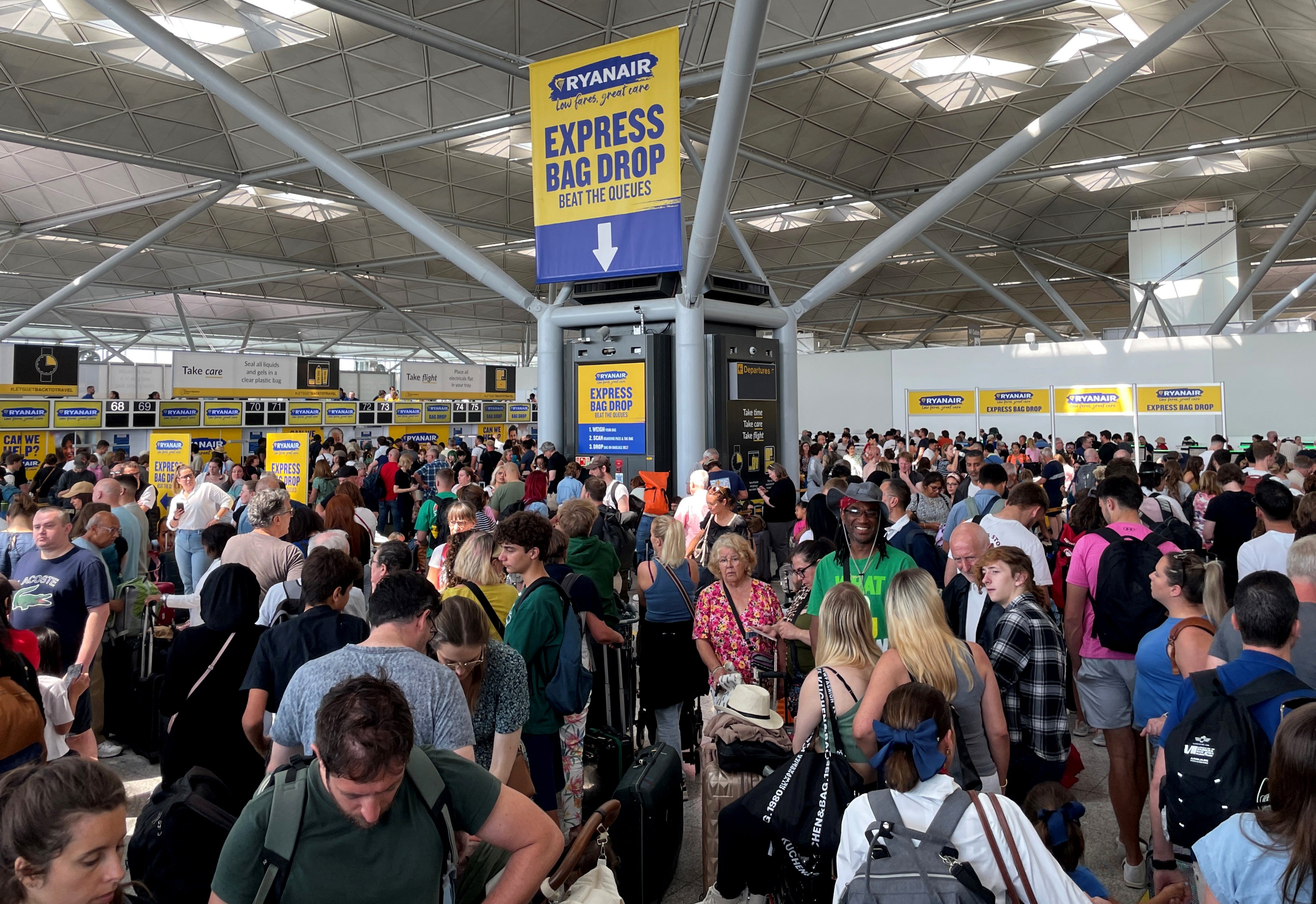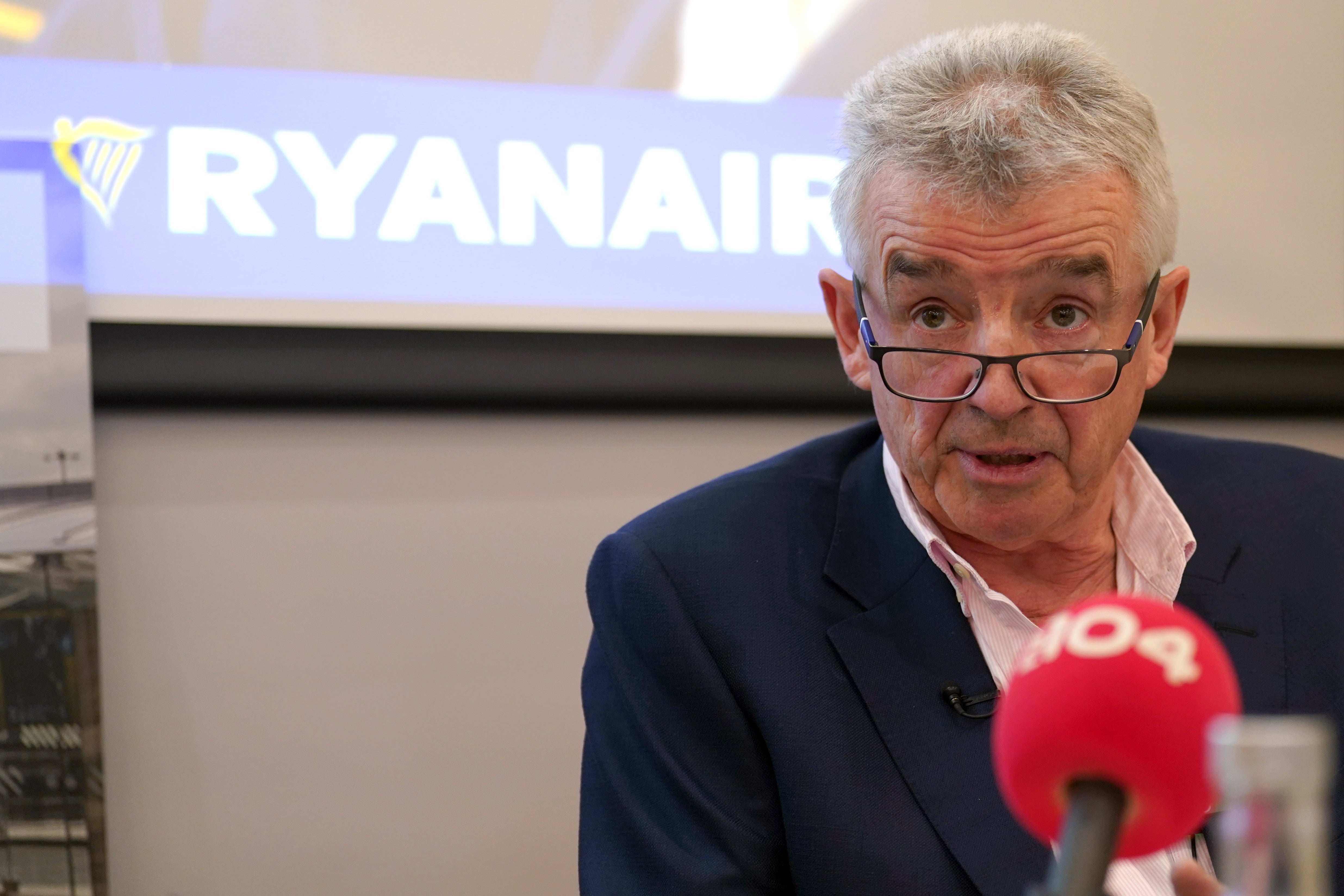Ryanair issues air fare warning as profits drop
The average fare fell 15% to 42 euros (£35) year on year

Ryanair has said airfares will be “materially lower” over the peak summer months than last year, as it reported plummeting quarterly profits.
Customers are typically waiting longer than usual to book summer holidays, which is thought to be partly a result of the cost-of-living crisis.
The Irish budget carrier said on Monday that lower prices over spring pushed profits down 46% to 360 million euros (£303 million) for the three months to June 30.
The average fare fell 15% to 42 euros (£35) year on year, while passenger numbers rose 10% to 55.5 million.
Chief executive Michael O’Leary said: “While (second-quarter) demand is strong, pricing remains softer than we expected, and we now expect (second-quarter) fares to be materially lower than last summer.”
The rise in passengers limited the hit to overall turnover, with revenues falling just 1% to 363 billion euros (£306 billion). Passenger numbers are forecast to be up 8% overall this financial year.
The figures come as the latest sign that the post-pandemic boom in pricing enjoyed by carriers is coming to an end, with other airlines also having recently warned over ticket prices.

Earlier in July, Jet2 said there would only be “modest” price increases this summer amid a wave of later bookings to its European destinations.
Lufthansa has also pointed to “negative market trends”, while Air France-KLM warned of a financial hit after fewer people than expected booked flights to Paris for the forthcoming Olympic Games.
Ryanair added that its performance for the rest of the summer is “totally dependent on close-in bookings and yields in August and September”.
Mr O’Leary also took aim at air traffic controllers across Europe after fewer flights took off over the period.
He said: “In the last 10 days of June we suffered a significant deterioration in European air traffic control capacity which caused multiple flight delays and cancellations, especially on first wave morning flights.”
“(This makes it) more urgent than ever that the new European Commission and Parliament deliver long-delayed reform of Europe’s hopelessly inefficient air traffic control services.”
Last week flights across Europe were cancelled due to the global IT outage.
Some 167 flights scheduled to depart UK airports were axed, with others delayed, while 171 flights due to land in the UK were cancelled, following the technical glitch.
Passengers were forced to wait in long queues for check-in desks and to pass through security at airports such as Gatwick, Luton and Manchester.
Aviation analytics company Cirium said 5,078 flights – or 4.6% of those scheduled – were cancelled globally on Friday, including the 167 UK departures.
Ryanair, which said it was “forced to cancel a small number of flights today”, told passengers: “If your flight has been cancelled, we kindly request that you leave the airport as the IT outage means we cannot currently assist passengers at the airport.”
Bookmark popover
Removed from bookmarks